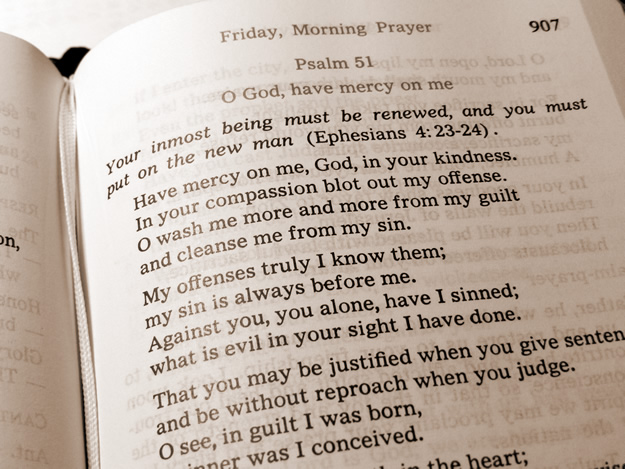Liturgy of Hours
The Liturgy of the Hours is a prayer of the Universal Catholic Church. It is a prayer of the whole Church, for the whole Church and for the salvation of the whole world, prayed by all clergy, religious Orders, secular Orders, lay groups, families and individuals. The Liturgy of the Hours, like other liturgical services, is not a private matter, but belongs to the whole Body of the Church, whose life it both expresses and affects. The Liturgy of the Hours is a structured form of prayer that includes antiphons, hymns, psalms, canticles, readings, intercessions and more. It is recited at various times of the day and celebrates the lives of saints, special days and feasts according to the liturgical year.

HISTORY OF THE BREVIARY
CONSECRATION OF TIME
Christ taught us, “You must pray at all times and not lose heart” (Lk 18:1). The Church fulfills this precept not only in the celebration of the Eucharist, but through the Liturgy of The Hours. An important aspect of the Liturgy of the Hours is that it consecrates to God the whole cycle of the day and night. The purpose of the Liturgy of The Hours is to sanctify the day and entire range of human activity. The structure of prayer has been revised in such a way as to make each hour correspond as much as possible, to the natural time and take into account the circumstances of today’s life.